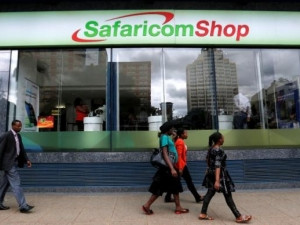
Safaricom says a suggestion that its mobile money platform, M-Pesa, should be split off from the group is hurting the telco's share value and fuelling investor fear in Kenya.
This after Jakoyo Midiwo, deputy minority leader in Kenya's national assembly, in February called for Safaricom to be broken up into pieces.
The idea of a split also came from a leaked draft report on competition in the Kenyan telecoms sector, done by consultancy Analysys Mason. The report was commissioned by the Communications Authority of Kenya after persistent complaints by smaller rivals over Safaricom's dominance.
Responding to questions from ITWeb, Safaricom said since news of the proposed split broke, the company "has lost over 160 billion Kenyan shillings [R20 billion] in Safaricom's share value, which is fuelling growing concerns from investors in the sustainability of their investments in Kenya".
Safaricom says it has not yet seen the report and it is "not possible for us to assess the potential impact on our operations" but it is the telco's belief that "the proposals in the report are retrogressive and will curb the dynamic growth of the ICT sector".
"These actions will appease the short-term interests of foreign-owned companies to the disadvantage of the Kenyan customer, economy and our shareholders.
"The government, the Communications Authority of Kenya and the Competition Authority have all come out clearly and said they are against calls to split the company," Safaricom told ITWeb.
Kenya's information, communication and technology minister Joe Mucheru has publicly come out against the split, saying the move would punish operators for innovations and discourage investments.
"The Kenyan telecommunications market remains underserved, and its future growth hinges on our ability to attract competent investors into the sector who hold the interests of Kenyans at heart," according to Safaricom.
The telco says this requires the support of a regulatory environment that upholds competitive investment and innovation, in the spirit of an open and free market.
Negative impact
Safaricom says a split of M-Pesa would have a negative impact on the more than 24 million M-Pesa customers. It says that by remaining part of Safaricom, M-Pesa benefits from efficiencies such as its call centre, SMS capabilities, network, data centres, technical capacities, "and the work and sweat of our more than 4 000 employees in improving and innovating the platform".
"The saved costs are passed down to our M-Pesa customers in the form of low transaction costs at less than 1% of the value of the transactions, M-Pesa Kadogo and the many innovative propositions. A separate M-Pesa would have to incur all these costs and would take longer to roll out innovative products and solutions to the customers."
It adds that a split would negatively impact M-Pesa and Kenya's position as the global leader in mobile money and it would be difficult for M-Pesa to provide many of the innovations that it provides today, should it be split off from the bigger group.
Safaricom is by far the biggest telecoms firm in Kenya, with 26 million subscribers. It also dominates the mobile-based financial services sector because of M-Pesa. The money transfer platform was launched in Kenya in March 2007 and is now active in 10 countries.
According to Safaricom's annual report for 2016, M-Pesa had 24 million registered customers in Kenya, with 30-day active customers sitting at around 16.6 million. Safaricom's M-Pesa revenue also grew by 27% to 41.5 billion Kenyan shillings (R5.3 billion) for the year ended 31 March 2016.
"Safaricom has built the basis for a business that has fostered economic growth for over 270 000 Kenyan businesses, sustaining over 777 000 jobs and creating over 10 times the economic returns to the Kenyan economy than its profits," Safaricom says.
Safaricom is 40% owned by UK-based Vodafone, while the Kenyan government owns 35% and the remaining 25% is publicly floated on the Nairobi Stock Exchange.
Share